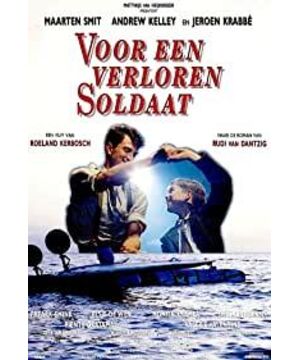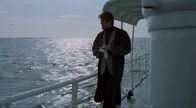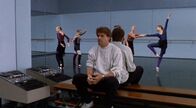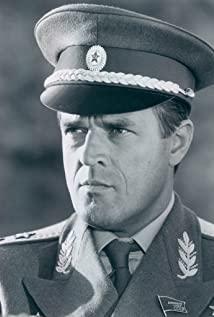--For a lost soldier.
For a lost soldier, the English name of the film is enough to teach people to feel sorry for it at the moment of entry. This is a story told slowly. Thirty years later, Jeroen recalls a war-time love, about an ignorant little boy in his memory, and an officer who was lost in his life.
He was sitting by the window, already fat. In his hand is a photo from that year - it seems, and the only one. In the photo, the little Dutch boy is standing with a Canadian officer, smiling brightly.
The film's picture is faint, like the blurry sunlight reflected in the Danish spring. The cruelty of war cannot be seen in the long narrative. It's just warm, but it hurts people's hearts because of the warmth.
All the subtleties are drawn inadvertently. The young officer turned around as the priest preached, and the two smiled at each other. The boy found a photo in the officer's drawer and stuffed it in his pocket. The officer put a chocolate in the little boy's mouth, ate one himself, and kissed softly. Such a rusty and astringent expression is even more beautiful.
In fact, the boy may never have understood what the man had said. On the grass by the sea, on the wreckage of the sunken plane, and on the last night of parting, the man had rambled a lot. It should be trying to tell the boy something, the boy doesn't understand English, and in the end it just becomes a man's self-talk. The language barrier makes the two of them kiss tightly, but they are separated by a glass in their hearts. Carefully groping for each other's traces, all they touch is warm and cold. So no matter how urgent the talk, it all turned into endless silence.
After digging out a short period of juvenile time along the memory line, a dusty love finally stayed at the most beautiful moment because it was not consumed by time. I think, Jeroen is happy.
However, he has disappeared forever beyond the sea.
View more about For a Lost Soldier reviews








